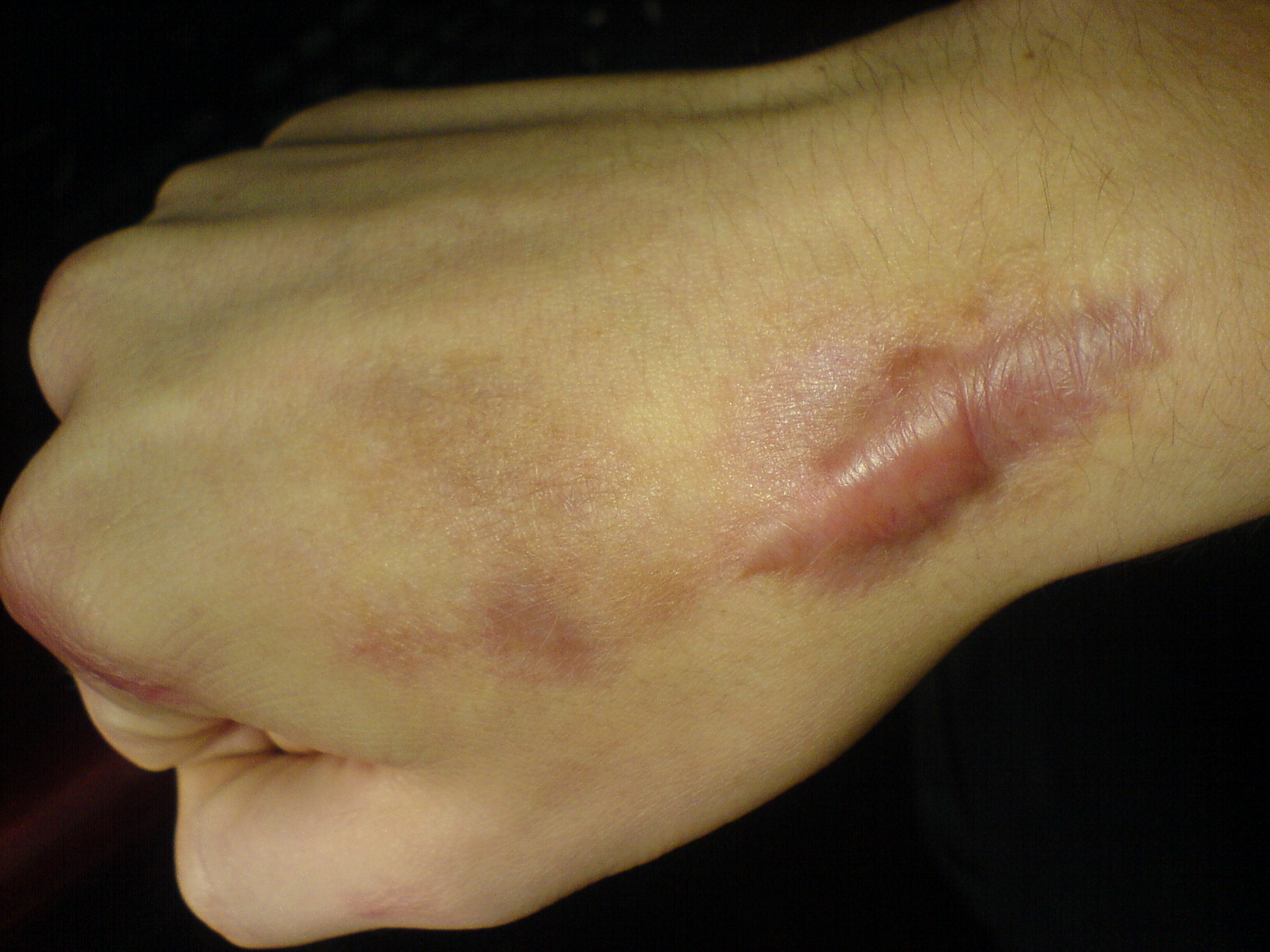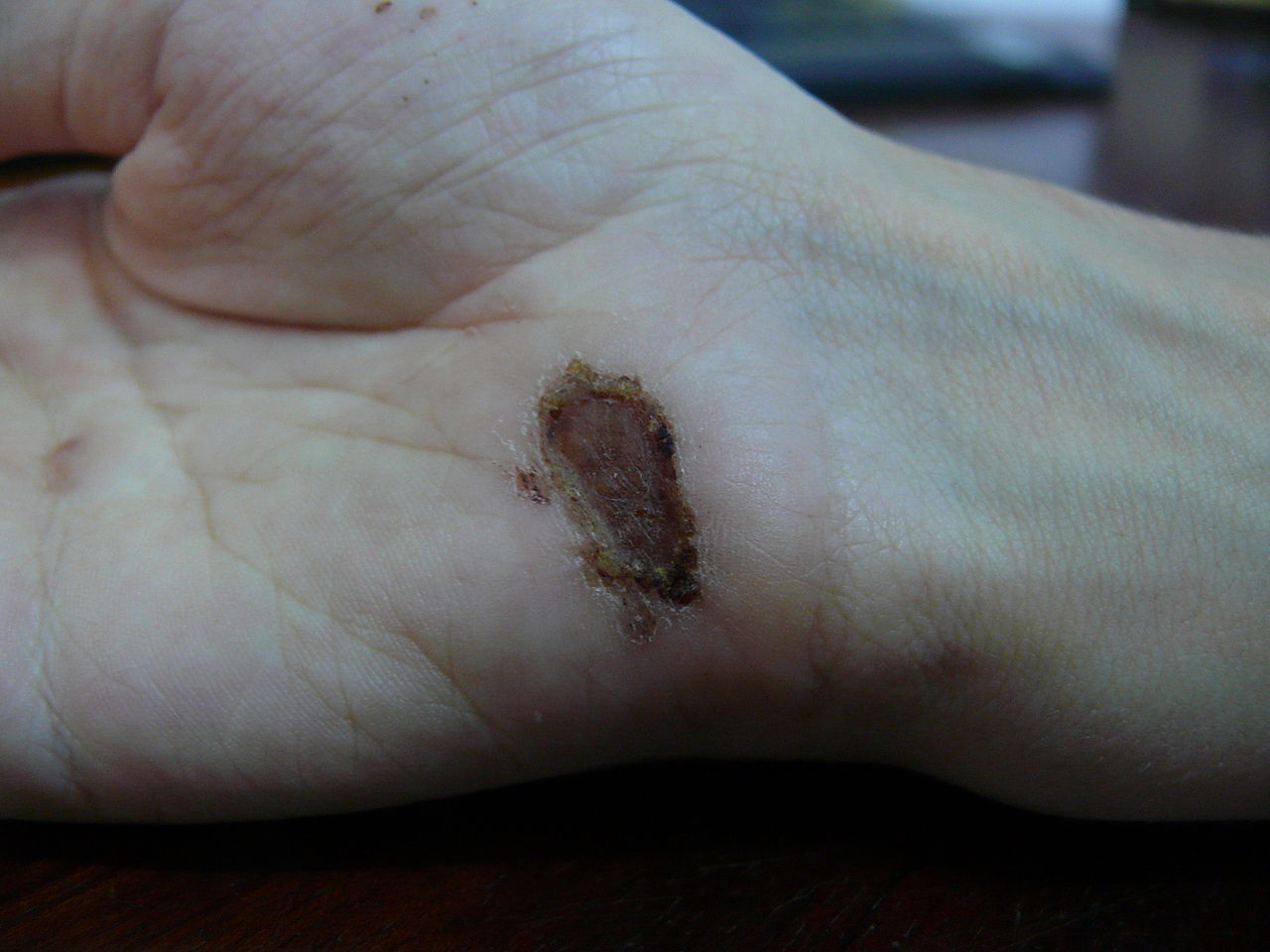Playlist
Show Playlist
Hide Playlist
Complications of Wound Healing
-
Slides Acute and Chronic Inflammation Complications of healing.pdf
-
Download Lecture Overview
00:01 Okay, so that's too much healing. 00:03 What about too little healing? Poor healing. 00:05 So clearly, if we don't have a good blood supply for whatever reason, if the tissue is ischemic, because this is going to be highly metabolically active, we're not going to get very good scar formation. 00:16 Infections because they continue to recruit inflammatory cells, because they do their own nastiness in that area will also lead to poor wound healing. 00:26 Clearly, if there's malnutrition, you don't have the fundamental building blocks to put together scar, it's not going to be good wound healing. 00:35 If we give anti-inflammatory agents, remember, steroids affect M2 macrophages more than they affect M1 macrophages so you get less fibrosis, that's going to be poor wound healing. 00:47 Mechanical stress. 00:48 If you keep pulling on this, those thin, delicate capillaries in angiogenesis, the granulation tissue will never have a chance to form properly and you won't get good wound healing. 01:01 And if you have a foreign body in there, that foreign body continues to recruit inflammatory cells, and you will never end the inflammatory cycle. 01:10 So foreign bodies can also be a complication can lead to poor wound healing. 01:17 You can also have just overenthusiastic healing. 01:20 You can have as we've already talked about, in the case of that intestinal adhesion, or in the case of the diffuse alveolar damage, or in the case of the fibrinous pericarditis, organization of exudates can be deleterious. 01:36 You can also have exuberant granulation tissue will show this on the next slide. 01:40 It's kind of interesting to think about why this happens, and why it doesn't happen most of the time. 01:46 And you can have hypertrophic scar or keloid. 01:49 Okay, in terms of the exuberant granulation tissue, it's called proud flesh. 01:54 When you think about it, if you have a wound in your skin, how does the granulation tissue know to stop at the normal level? Actually, that answer is not known. 02:06 In most of us, in the vast majority of the time, it knows when to stop and it stops there. 02:11 And then we get epithelium over the surface and the wound heals. 02:14 But sometimes that granulation tissue extends up over the surface of the skin. 02:19 It's called proud flesh, just exuberant tissue, the only way we get this to heal is to kind of cauterize that, burn that off, and try to get healing to occur. 02:28 So an exuberant granulation tissue response. 02:32 And the same way you can have exuberant granulation tissue responses, you can have exuberant scars. 02:37 So again, in most of us, if we cut our skin, and we heal that it heels kind of at the level of the skin, but sometimes, and there are certain ethnic groups, African Americans, for example, who have exuberant scarring, whenever they injure, get injured, the scar tends to be much, much more than just getting back to the baseline level of whatever tissue. 03:02 And this is just an example of a hypertrophic scar. 03:05 We also call this a keloid. 03:08 They are not particularly toxic. 03:11 They're not particularly harmful, but they may not be particularly attractive. 03:17 What a hypertrophic scar looks like is basically just exaggerated amounts of connective tissue. 03:23 The extracellular matrix, on the right hand side in the hypertrophic scar is much pinker and denser and there's much more of it than the normal skin. 03:31 And that's kind of all it is, and it ends up pushing the level of overlying skin up above everything else. 03:38 So you have a very dramatic scar.
About the Lecture
The lecture Complications of Wound Healing by Richard Mitchell, MD, PhD is from the course Acute and Chronic Inflammation.
Included Quiz Questions
Which of the following factors is associated with poor healing?
- Steroid use
- Appropriate nutrition
- Absence of foreign bodies
- Good blood supply
- Lack of tension on wound edges
Which of the following statements regarding wound healing is true?
- Intestinal adhesions form after abdominal surgeries as a result of exudate organization.
- Exuberant granulation tissue should be treated with chemotherapy.
- Infections do not affect healing processes.
- Exuberant granulation tissue presents as an itchy scar extending beyond the wound edges.
- Keloid scarring is commonly associated with the Caucasian race.
Customer reviews
5,0 of 5 stars
| 5 Stars |
|
1 |
| 4 Stars |
|
0 |
| 3 Stars |
|
0 |
| 2 Stars |
|
0 |
| 1 Star |
|
0 |
I was looking for a quick review and this video worked well to remind of the concepts I needed to know





